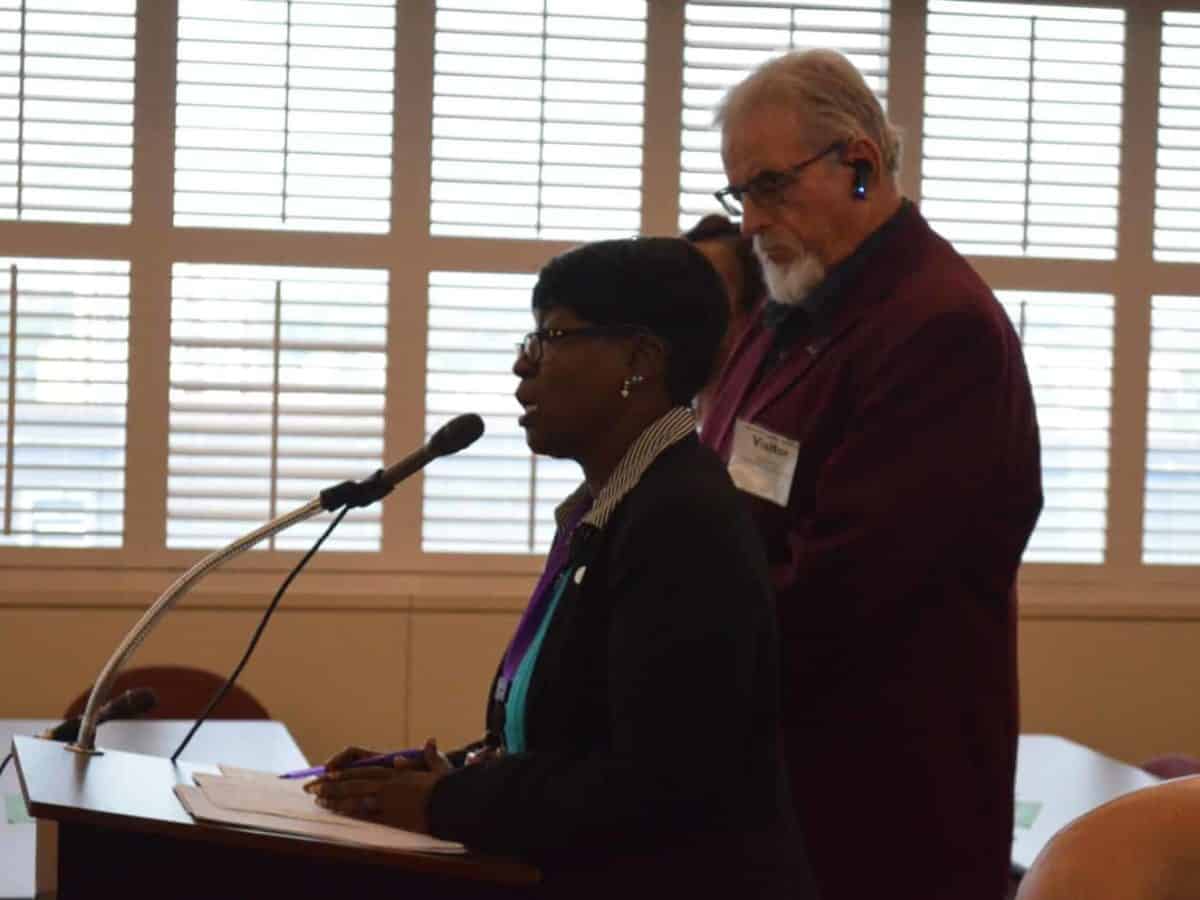

The State Board of Education’s three-person review panel met Tuesday to hear Heritage Collegiate Leadership Academy Charter (HCLA)’s appeal to the revocation of their charter in November.
Deanna Townsend–Smith, assistant director of charter schools for the state’s Department of Public Instruction (DPI), addressed the issues that caused the revocation of the school’s charter.
“The school has a lot of excuses and no solutions. There are glaring academic, governing and finance issues,” Townsend-Smith said.
Representatives from DPI and Heritage Collegiate Leadership Academy presented information to panel members for about an hour.
The school opened in 2014 and was labeled as low performing by the state in 2015 and 2016. At the time of its opening in August 2014, the school’s Ready-to-Open report revealed the school still had to address lingering issues, including board governance, funding documentation, school safety, and its policy manual.
Since then, various concerns with the school regarding student performance, finances and leadership have persisted, Townsend-Smith said.
On August 31, the school was the only charter out of 33 to miss the deadline for charter renewal. The annual immunization reporting was also not completed as of November 29, leaving the school noncompliant for the 2017-18 school year.
The school is also in cautionary noncompliance for failure to submit their personnel report. The 2017 audit still has not been turned in and was due on October 31, leaving the department in the dark about the school’s current financial status.
“They have little concern for the fact that they do not have financial statements…there is no oversight on the payments being made,” said Alexis Schauss, director of School Business Administration at DPI.
She said the school had provided a list of staff for the 2015-16 school year, but nine people were on payroll who were not on the list. There was also a teacher, a teacher mentor, a teaching assistant, a bus driver and a school nurse listed as clerical staff.
At the end of October 2015, the school received notification that only 25 percent of teachers were licensed out of the 50 percent required, Townsend-Smith said.
Kashi Bazemore-Hall, the principal and founding director of the school, attended the school’s revocation appeal by herself — she said she had invited other leaders from the school to attend, but they had all refused because they had “done everything right.”
She said she was disheartened by the media coverage of the school’s charter revocation.
“I’ve been ostracized in the news, made fun of, and I just think we can do so much better than this,” she said.
As of June 4, the school had met minimum licensure requirements, she said. She received an email stating that the school board’s meeting minutes had improved, she said. Bazemore-Hall said she had at times received positive feedback from DPI members, including Schauss.
“She described us as ‘doing a lot with a little bit of money’,” Bazemore-Hall said.
The school had started its first month with issues it needed to address, as laid out in its Ready-to-Open report.
“They were playing catch-up from the time the State Board approved their charter,” Townsend-Smith said.
When asked why they were behind from the beginning, Bazemore-Hall said the biggest mistake she made was not being the principal of the school initially. At first, she was only the executive director. She also said she only gained access to the cash management system last month.
“I’ve made mistakes, that’s true,” she said. “We got behind because I trusted all the wrong people.”
She discussed having issues with Charter Success, a charter school management company, and eventually switching to Acadia Northstar.
With about 10 minutes left in Bazemore-Hall’s time, Olivia Oxendine, a panel member, said:
“I go to the bottom line, usually, when I need to make a decision, so my bottom-line question to you is: Give me the composite scores for your school since you’ve opened.”
“Twenty-three percent,”Bazemore-Hall started, but then said, “We’ve been in the 20s and we made it up to the 30s I believe in math, but those numbers are absolutely consistent with those in the region until this year.”
When asked what her worst financial decision was, Bazemore-Hall said it was to continue to enroll students beyond the funding allotted for the school year.
After presentations, the panel convened in closed session to formulate a recommendation for State Board of Education to consider at its Dec. 7 meeting, where the board will make a final decision regarding the school’s charter.


